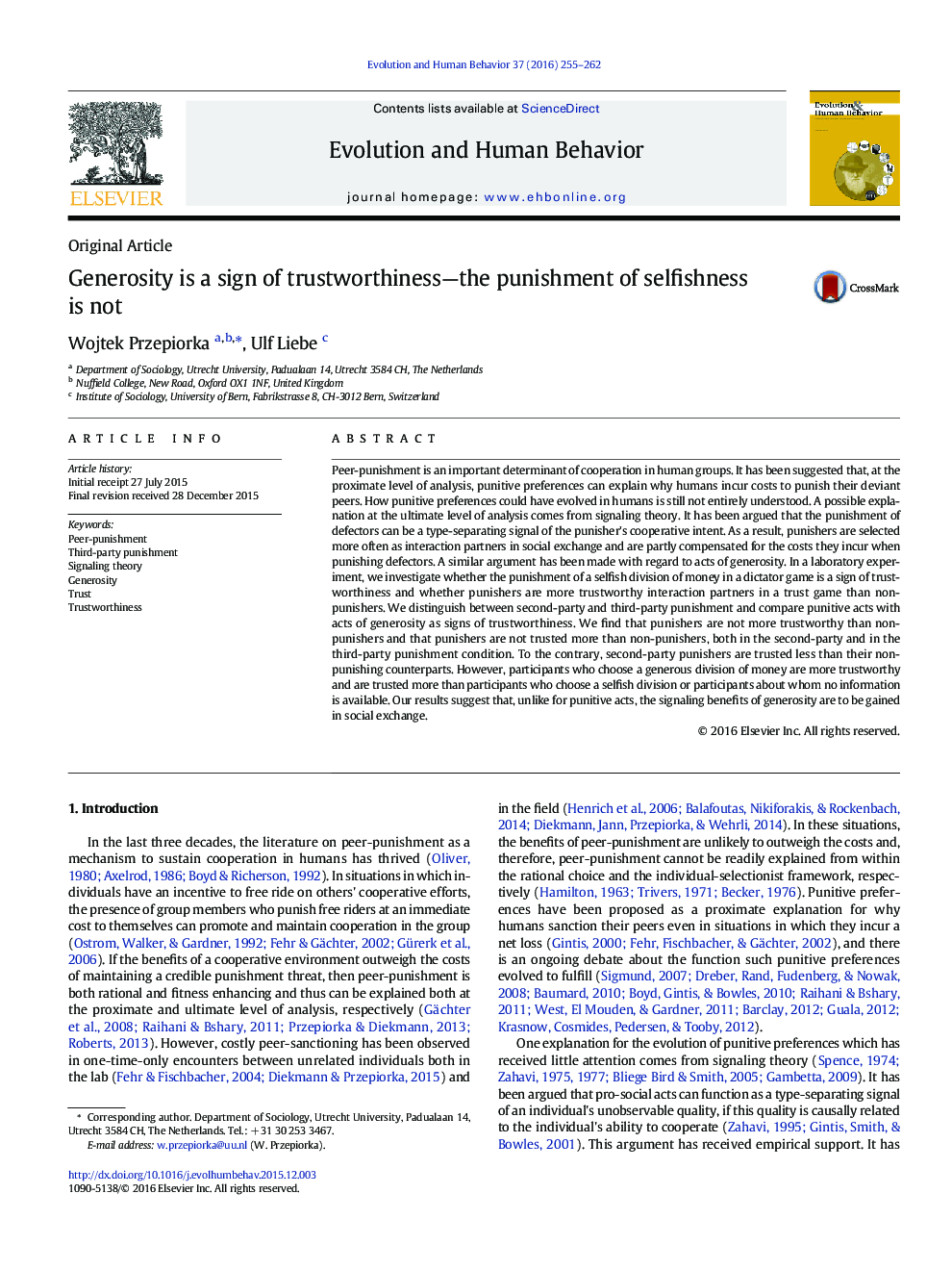| Article ID | Journal | Published Year | Pages | File Type |
|---|---|---|---|---|
| 943118 | Evolution and Human Behavior | 2016 | 8 Pages |
Peer-punishment is an important determinant of cooperation in human groups. It has been suggested that, at the proximate level of analysis, punitive preferences can explain why humans incur costs to punish their deviant peers. How punitive preferences could have evolved in humans is still not entirely understood. A possible explanation at the ultimate level of analysis comes from signaling theory. It has been argued that the punishment of defectors can be a type-separating signal of the punisher's cooperative intent. As a result, punishers are selected more often as interaction partners in social exchange and are partly compensated for the costs they incur when punishing defectors. A similar argument has been made with regard to acts of generosity. In a laboratory experiment, we investigate whether the punishment of a selfish division of money in a dictator game is a sign of trustworthiness and whether punishers are more trustworthy interaction partners in a trust game than non-punishers. We distinguish between second-party and third-party punishment and compare punitive acts with acts of generosity as signs of trustworthiness. We find that punishers are not more trustworthy than non-punishers and that punishers are not trusted more than non-punishers, both in the second-party and in the third-party punishment condition. To the contrary, second-party punishers are trusted less than their non-punishing counterparts. However, participants who choose a generous division of money are more trustworthy and are trusted more than participants who choose a selfish division or participants about whom no information is available. Our results suggest that, unlike for punitive acts, the signaling benefits of generosity are to be gained in social exchange.
